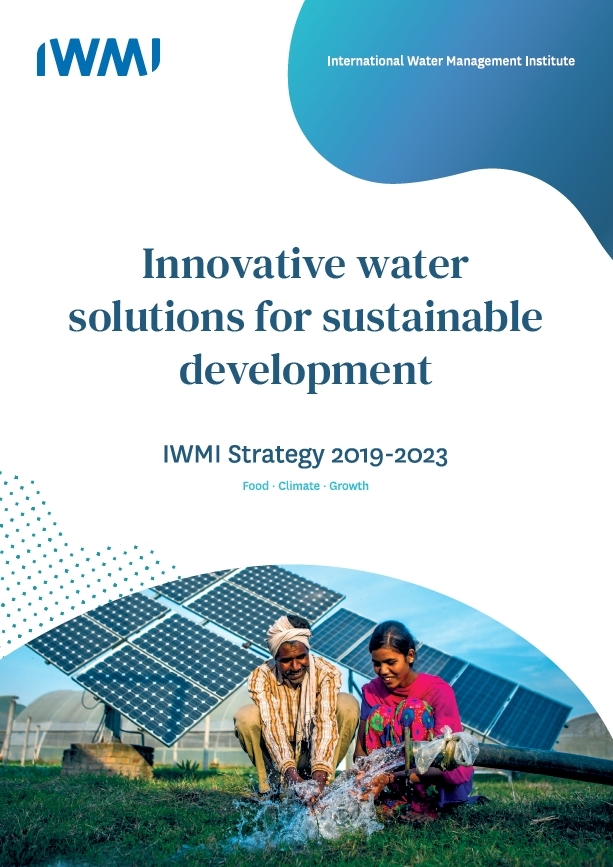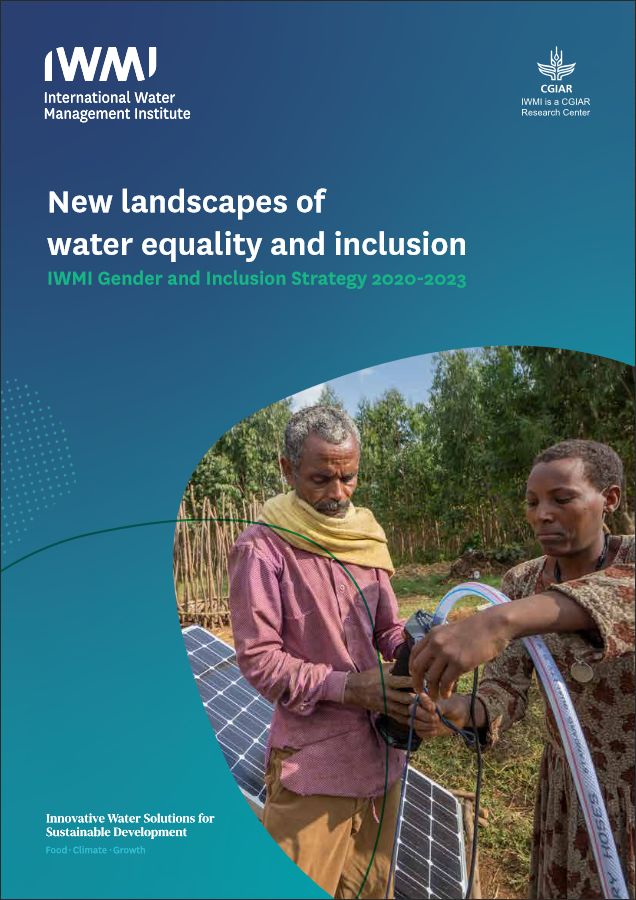Our strategy
Innovative Water Solutions for Sustainable Development
 IWMI’s Strategy 2019-2023 responds directly to the demand for innovative, scientifically tested water management solutions for sustainable development. With offices in 14 countries and a global network of scientists operating in more than 30 countries, our research, at field to basin and regional scales, will address three high-priority water challenges:
IWMI’s Strategy 2019-2023 responds directly to the demand for innovative, scientifically tested water management solutions for sustainable development. With offices in 14 countries and a global network of scientists operating in more than 30 countries, our research, at field to basin and regional scales, will address three high-priority water challenges:
 Food – To improve food security while sustainably managing water resources and ecosystems.
Food – To improve food security while sustainably managing water resources and ecosystems.
 Climate – To adapt to and mitigate climate change while building resilience to water-related disasters and disruption.
Climate – To adapt to and mitigate climate change while building resilience to water-related disasters and disruption.
 Growth – To reduce poverty and advance inclusion with equality as agriculture transforms, energy transitions and urbanization intensifies.
Growth – To reduce poverty and advance inclusion with equality as agriculture transforms, energy transitions and urbanization intensifies.
Going forward, IWMI will expand and intensify its efforts to deliver water solutions and bring about broad systemic change, and build on our extensive web of strategic alliances with fellow CGIAR centers and other national and international partners across the world.
Download the strategy | Summary – English version | Summary – Arabic version
New landscapes of water equality and inclusion
 IWMI’s Gender and Inclusion Strategy 2020-2023 supports the implementation of the IWMI Strategy 2019-2023. This is done by ensuring that gender equality and inclusion are central to the Institute’s three Strategic Programs — water, food and ecosystems; water, climate change and resilience; and water, growth and inclusion — and to its fourth crosscutting program pillar on digital innovations.
IWMI’s Gender and Inclusion Strategy 2020-2023 supports the implementation of the IWMI Strategy 2019-2023. This is done by ensuring that gender equality and inclusion are central to the Institute’s three Strategic Programs — water, food and ecosystems; water, climate change and resilience; and water, growth and inclusion — and to its fourth crosscutting program pillar on digital innovations.
IWMI’s mission is to provide water solutions for sustainable, climate-resilient development. This responds to international policy concerns about global systems changing in ways that heighten the vulnerability of millions of poor people, impact on species diversity, and ultimately, risk future achievement of the United Nations Sustainable Development Goals (SDGs).
Our action plan will be the foundation for the three pillars of this Strategy: (i) bridging knowledge gaps, (ii) fixing systems, and (iii) catalyzing transformation. We will build on the work carried out by IWMI’s three Strategic Programs, as well as its fourth crosscutting program pillar on digital innovations.

